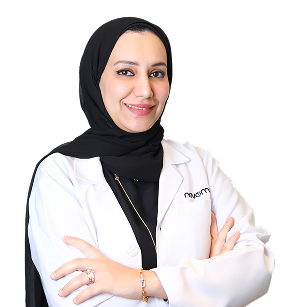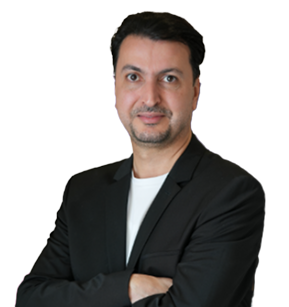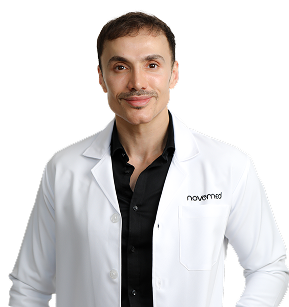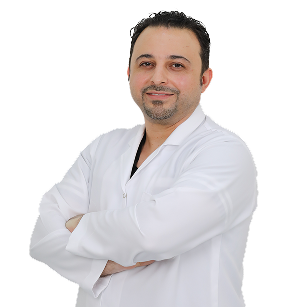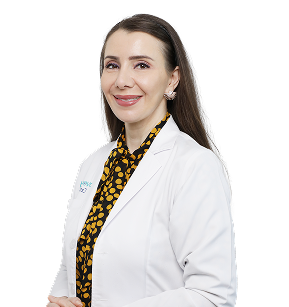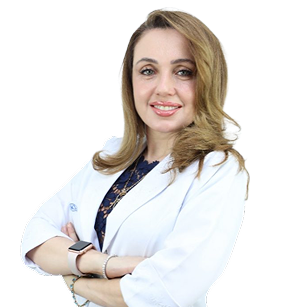Psoriasis Treatment in Dubai, Abu Dhabi and Al Ain
Psoriasis is an autoimmune disorder that occurs due to skin cells multiplying up to 10 times faster than normal. When the underlying cells reach the skin’s surface and die, they start to build up. The accumulation of dead cells on the skin’s surface appears as raised, red patches covered with white or silvery scales.
Triggers for psoriasis include:
- Cuts, scrapes, stings and sunburn
- Infections, for example strep throat or skin infections
- Lifestyle factors such as stress, smoking, heavy alcohol consumption
- Vitamin D deficiency
- Certain medications including antimalarial drugs, iodides, beta blockers, etc
While it can be found anywhere on the body, psoriasis normally occurs on the scalp, knees, soles of the feet, elbows, palms and torso. There is no cure for psoriasis, but it typically responds well to topical and systemic treatments, as well as light therapy. These can improve your symptoms and help you control it better.
Symptoms
Common signs and symptoms of psoriasis include:
- Red patches of skin covered with thick, silvery scales
- Small scaling spots (commonly seen in children)
- Dry, cracked skin that may bleed
- Itching, burning or soreness
- Thickened, pitted or ridged nails
- Swollen and stiff joints
These symptoms, though, will vary from person to person, and also in accordance with the type of psoriasis you have:
- Erythrodermic psoriasis: While rare, this form of psoriasis can cover your entire body with a red, peeling, itchy or burning rash.
- Guttate psoriasis: The lesions in the guttate form are in the shape of drops (gutta, is Latin for ‘drop’), and they are covered by a fine scale. Affecting mainly adolescents and children, guttate psoriasis is often triggered by a bacterial infection, for example, strep throat.
- Inverse psoriasis: In this form, the patches of red, inflamed skin are smooth, not scaly as in other forms. Inverse psoriasis may result from a fungal infection and it typically affects skin on the groin, armpits, under the breasts and around the genitals.
- Nail psoriasis: As the name implies, this form affects fingernails and toenails, causing abnormal growth, with ridges or pitting, and discoloration. Psoriatic nails might loosen and separate from the nail bed or, in severe cases, the nail may crumble.
- Plaque psoriasis: This is the most common form of psoriasis and can occur anywhere on the body, including the soft tissue inside your mouth. It is marked by raised, dry, red, itchy or painful skin lesions covered by silvery scales.
- Psoriatic arthritis: In addition to characteristics of psoriasis such as scaly and inflamed skin, sufferers of this form also experience painful, swollen joints typical of arthritis. Usually the lesions appear first, but sometimes the arthritis comes first.
- Pustular psoriasis: This uncommon form is characterized by pus-filled blisters and can occur over large areas, or just smaller areas such as your fingertips. The blisters may disappear and reappear frequently. Other symptoms are chills, fever, itching and diarrhea.
When to see a doctor
No matter the severity of your psoriasis, you should seek out a dermatologist. Even though there is no cure for psoriasis, you don’t have to live with the discomfort as a dermatologist can help you manage it.
Diagnosis & Treatment
Usually, psoriasis can be diagnosed without any tests, simply by taking your medical history and analyzing your skin, hair or nails. There are three main forms of treatment – topical ointments, light therapy (phototherapy, UVA and UBV) and medication (oral or injections). Conventionally, we start with the most conservative options (ointments and light therapy) and then move on to medication if necessary.
Schedule your appointment at Novomed today!
To book a consultation with one of our expert dermatologists in Dubai, call us at 8006686, fill out the booking form or click the live chat icon at the bottom of the screen.
